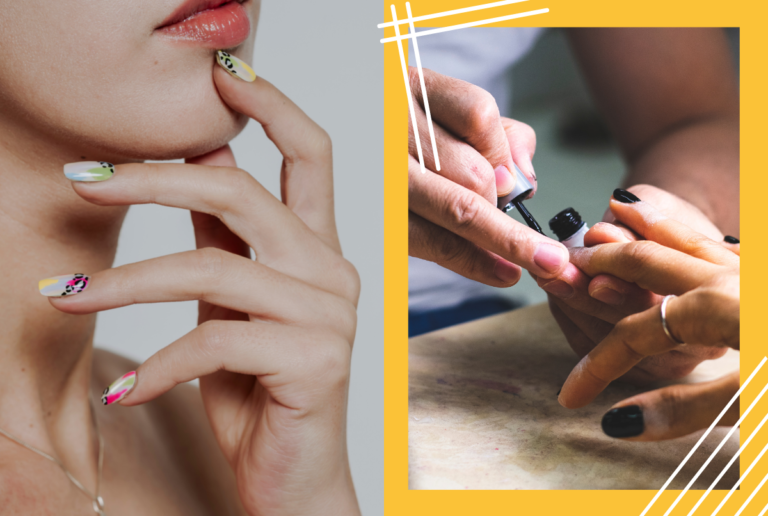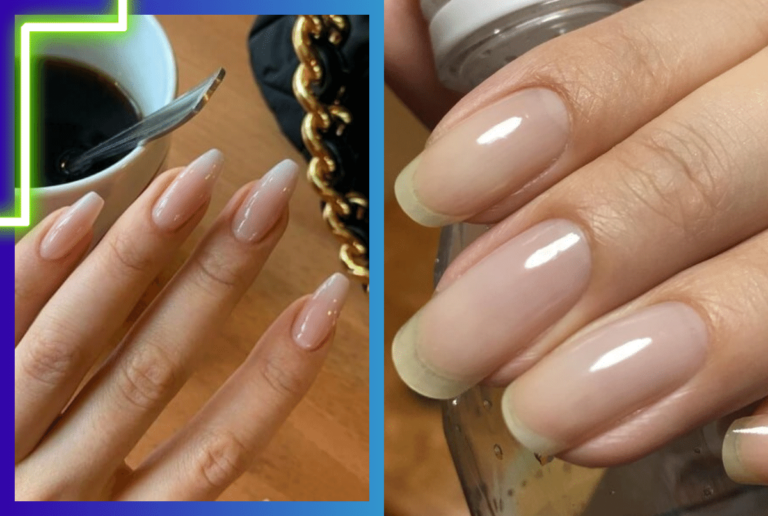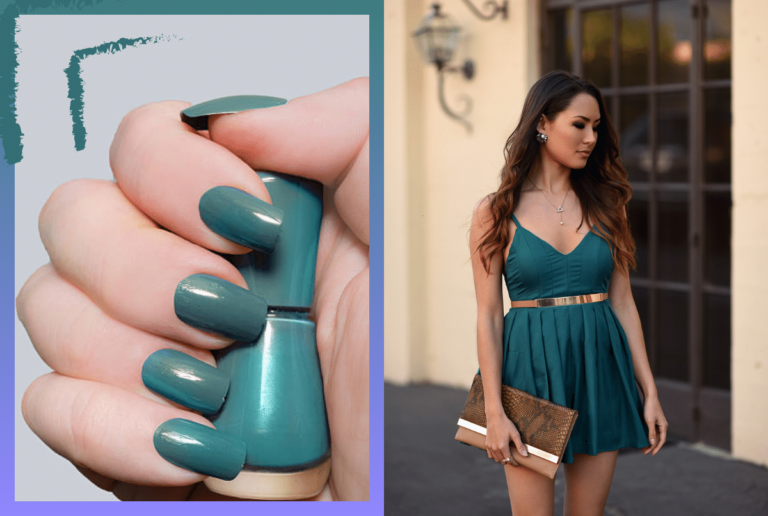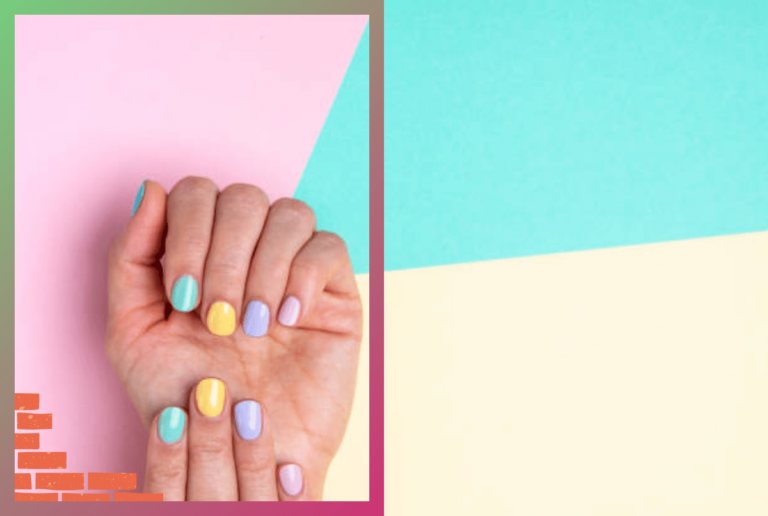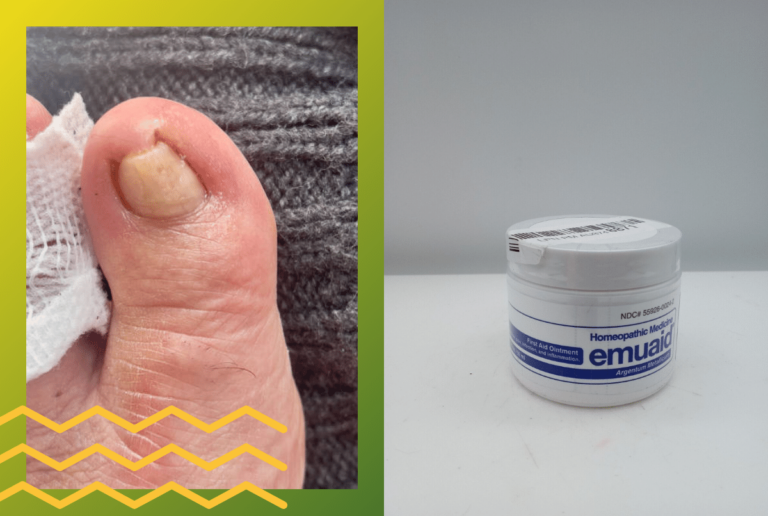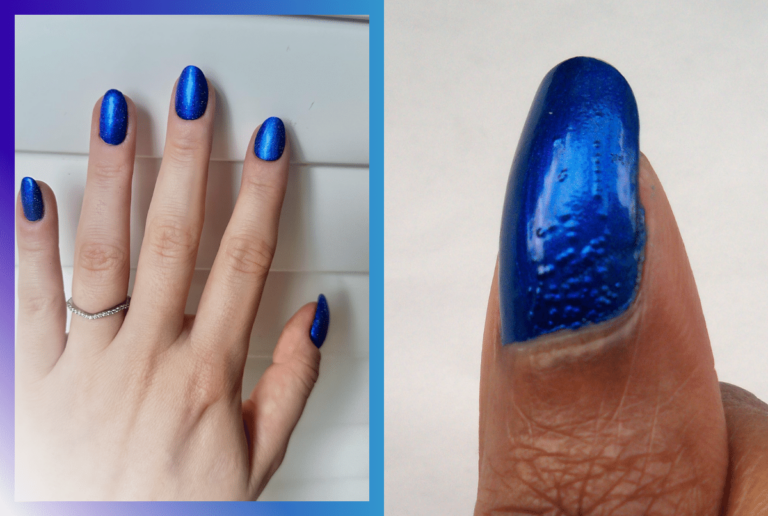Nail Glue Alternatives
Looking for a break from traditional nail glue?
Whether it’s due to the harsh smell, potential health concerns, or simply the desire for a more natural approach, there are plenty of nail glue alternatives worth exploring.
Well, we’ll be going over:
- What are some effective substitutes for nail glue that offer a safer and more pleasant manicure experience?
- How do these alternatives compare in terms of application, durability, and removal?
- What are some tips for achieving the best results with these nail glue alternatives?
Let’s dive in.
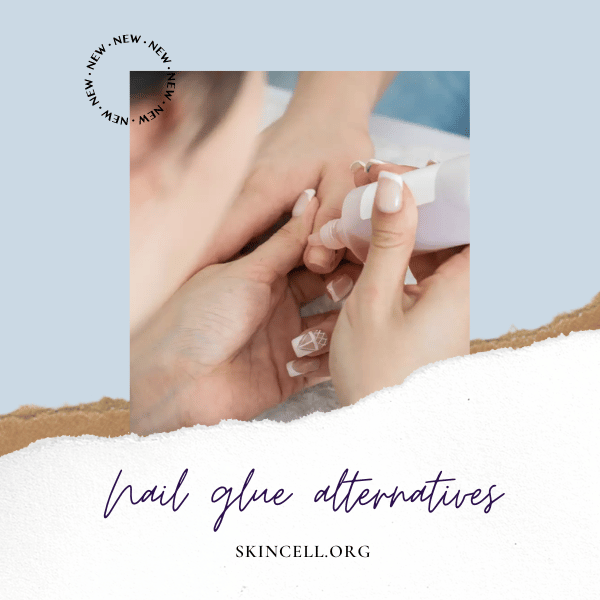
Key Takeaways
- Nail glue alternatives are becoming increasingly popular among people who want to avoid the health risks associated with traditional nail glue.
- There are many different types of alternative adhesives for nail application, each with its own unique benefits and drawbacks.
- Some practical tips for using alternative adhesives include choosing the right adhesive for your needs, following the manufacturer’s instructions carefully, and taking steps to protect your nails and skin from damage.
Nail Glue and Its Effects
When it comes to achieving a perfect manicure, nail glue can be a lifesaver. It is a quick and easy way to attach artificial nails, repair broken nails, and secure nail art.
However, it’s important to understand the components of nail glue, potential damage to natural nails, and common allergies and skin irritation associated with it.
Components of Nail Glue
Nail glue is typically made of cyanoacrylate, a fast-drying adhesive. It works by bonding the artificial nail or nail art to your natural nail. Some nail glues also contain other chemicals such as formaldehyde, toluene, and dibutyl phthalate, which are toxic and can cause harm to your natural nails.
Potential Damage to Natural Nails
While nail glue is a convenient solution, it can also cause damage to your natural nails if not used correctly. The chemicals in nail glue can weaken and thin your natural nails, making them more prone to breakage.
Additionally, if you remove the artificial nails or nail art incorrectly, you can peel off layers of your natural nails, causing damage and pain.
Common Allergies and Skin Irritation
Nail glue can also cause common allergies and skin irritation, especially if you have sensitive skin. Some people may experience allergic reactions to the chemicals in nail glue, resulting in redness, itching, and swelling.
It’s important to do a patch test before using nail glue for the first time to make sure you’re not allergic to it.
To avoid potential damage and skin irritation, you may want to consider using alternative methods to attach artificial nails or nail art. For example, you can use nail stickers, press-on nails, or a non-toxic nail glue.
These alternatives are gentler on your natural nails and less likely to cause skin irritation or allergic reactions.
In conclusion, while nail glue can be a useful tool for achieving a perfect manicure, it’s important to understand its components, potential damage to natural nails, and common allergies and skin irritation associated with it.
By being aware of these factors, you can make an informed decision about whether or not to use nail glue and take steps to minimize any potential harm.
Alternative Adhesives for Nail Application
If you’re looking for alternatives to traditional nail glue, there are several options available. Here are some alternative adhesives for nail application that you can try:
Press-On Nails and Adhesive Tabs
Press-on nails and adhesive tabs are a great alternative to traditional nail glue. They come in a variety of colors and designs, and you can easily apply them at home. Adhesive tabs are also a great option if you want to avoid using glue altogether. They are easy to apply and remove, and they won’t damage your nails.
DIY Nail Glue Options
If you prefer to make your own nail glue, there are several DIY options you can try. PVA glue, also known as white glue, is a popular choice for DIY nail glue.
You can mix it with water to create a thinner consistency that is easier to apply. Another option is to use a nail glue pen, which is a convenient and mess-free way to apply glue to your nails.
Non-Toxic Alternatives for Sensitive Skin
If you have sensitive skin or are looking for non-toxic alternatives, there are several options available. Look for nail glues that are labeled as non-toxic or hypoallergenic. You can also try using natural adhesives, such as honey or aloe vera gel, to attach your press-on nails or nail art.
Overall, there are many alternative adhesives for nail application available that can help you achieve the look you want without using traditional nail glue. Whether you prefer press-on nails, DIY options, or natural alternatives, there is an option out there for you.
Long-Lasting and Durable Nail Fixatives
When it comes to nail glue alternatives, you want something that will last for a long time. Fortunately, there are several options available that can provide a durable and long-lasting hold for your nails.
Acrylic Mixtures and Powders
Acrylic mixtures and powders are a popular choice for those looking for a long-lasting and durable nail fixative. These mixtures and powders are made from a combination of liquid and powder that hardens when exposed to air. They can be used to create a strong bond between your natural nail and an artificial nail.
To apply acrylic mixtures and powders, you will need to first apply a base coat to your natural nail. Then, you will dip a brush into the mixture or powder and apply it to your nail. You will need to repeat this process several times, allowing each layer to dry before applying the next.
Gel Nail Polish as an Adhesive
Gel nail polish is another option for those looking for a long-lasting and durable nail fixative. Gel nail polish is a type of nail polish that is cured under a UV lamp. This curing process creates a hard and durable finish that can last for several weeks.
To use gel nail polish as an adhesive, you will need to first apply a base coat to your natural nail. Then, you will apply a layer of gel nail polish to your nail and cure it under a UV lamp. You can then apply an artificial nail to your natural nail using the cured gel nail polish as an adhesive.
Super Glue and Other Strong Adhesives
If you need a strong and durable nail fixative, super glue and other strong adhesives may be a good option. Super glue, also known as cyanoacrylate, is a fast-drying adhesive that can create a strong bond between your natural nail and an artificial nail.
To use super glue as a nail fixative, you will need to first apply a base coat to your natural nail. Then, you can apply a small amount of super glue to your natural nail and press an artificial nail onto it. You will need to hold the artificial nail in place for a few seconds to allow the glue to dry.
Gorilla glue is another strong adhesive that can be used as a nail fixative. However, it is important to note that Gorilla glue can be difficult to remove and may damage your natural nail if not used properly.
Overall, there are several long-lasting and durable nail fixatives available that can provide a strong hold for your nails. Whether you choose acrylic mixtures and powders, gel nail polish, or a strong adhesive like super glue or Gorilla glue, be sure to follow the instructions carefully to ensure a safe and effective application.
Health and Safety Considerations
When it comes to using nail glue, there are several health and safety considerations to keep in mind. By following a few simple guidelines, you can ensure that you are using nail glue safely and effectively.
Avoiding Toxic Substances
One of the most important considerations when using nail glue is to avoid toxic substances. Some nail glue products contain harmful chemicals that can be dangerous if ingested or absorbed through the skin.
To avoid these toxic substances, look for nail glue products that are labeled as non-toxic or hypoallergenic. Avoid products that contain formaldehyde, toluene, or dibutyl phthalate, as these chemicals can be harmful to your health.
Preventing Nail Damage
Another consideration when using nail glue is to prevent nail damage. Nail glue can be very strong and can cause damage to your natural nails if used improperly.
To prevent nail damage, be sure to apply the glue only to the area where the artificial nail will be attached, and avoid getting glue on your skin or cuticles. Also, avoid using nail glue too often, as this can weaken your natural nails over time.
Choosing Hypoallergenic Options
If you have sensitive skin or are prone to allergies, it is important to choose hypoallergenic options when using nail glue. Look for products that are labeled as hypoallergenic or are specifically designed for sensitive skin. These products are less likely to cause allergic reactions or skin irritation.
By following these health and safety considerations, you can ensure that you are using nail glue safely and effectively.
Remember to always read the label and follow the instructions carefully, and if you experience any adverse reactions, stop using the product immediately and seek medical attention if necessary.
Practical Tips for Nail Glue Alternatives
If you’re looking for a nail glue alternative, you’re in luck! There are several options available that are easy to apply, cost-effective, and maintain your nail art and aesthetics. Here are some practical tips to help you choose the right alternative for you.
Easy Application and Removal
One of the biggest concerns when it comes to nail glue alternatives is how easy they are to apply and remove. Fortunately, there are several options that are just as easy to use as traditional nail glue. For example, clear nail polish can be used as a base coat to help your nail art stick.
Another option is to use double-sided tape to attach your nail art. Both of these options are easy to apply and remove, so you won’t have to worry about damaging your nails.
Cost-Effective Solutions
Another factor to consider when choosing a nail glue alternative is cost. While traditional nail glue can be expensive, there are several cost-effective alternatives available. For example, you can use a small amount of white school glue to attach your nail art.
This is a great option if you’re on a tight budget, as school glue is very affordable and easy to find. Another cost-effective option is to use a small amount of clear nail polish as a base coat. This will help your nail art stick without breaking the bank.
Maintaining Nail Art and Aesthetics
When it comes to maintaining your nail art and aesthetics, there are several things to keep in mind. For example, it’s important to choose a nail glue alternative that won’t damage your nails or your nail art.
Clear nail polish is a great option for maintaining your nail art, as it won’t damage your nails and will help your nail art stay in place. Another option is to use double-sided tape to attach your nail art. This is a great option if you want to maintain your nail art for a longer period of time.
In conclusion, there are several practical tips to keep in mind when choosing a nail glue alternative. Whether you’re looking for something easy to apply and remove, cost-effective, or something that will help maintain your nail art and aesthetics, there are several options available.
By following these tips, you’ll be able to find the perfect nail glue alternative for you.
Frequently Asked Questions
What are the best alternatives to traditional nail glue for applying acrylic nails?
If you are looking for an alternative to traditional nail glue for applying acrylic nails, then you should try using double-sided adhesive tape. This tape is easy to use and can be cut to fit the shape of your nails.
Additionally, it can be removed without damaging your natural nails. Another alternative is using a nail adhesive that is made from ethyl 2-cyanoacrylate, which provides better adhesion but can be more difficult to remove.
Can adhesive tabs be an effective substitute for nail glue in attaching fake nails?
Yes, adhesive tabs can be an effective substitute for nail glue in attaching fake nails. They are easy to use and can be removed without damaging your natural nails. However, they may not be as strong as traditional nail glue, so they may not be suitable for long-term wear.
Is it possible to use a top coat as a bonding agent for artificial nails?
No, it is not possible to use a top coat as a bonding agent for artificial nails. Top coats are designed to protect nail polish and provide a glossy finish, but they do not have the adhesive properties needed to bond artificial nails to your natural nails.
How can one create a DIY nail glue using household items?
It is not recommended to create a DIY nail glue using household items, as these may not be safe or effective. It is best to use a commercial nail adhesive that is specifically designed for use with artificial nails.
What methods are available for repairing a broken nail without using glue?
If you have a broken nail, you can try using a nail wrap or a silk wrap to hold the nail together while it grows out. Additionally, you can try using a nail strengthener or a nail hardener to help prevent future breakage.
Are there any safe household adhesives that can double as nail glue for temporary fixes?
No, there are no safe household adhesives that can double as nail glue for temporary fixes. It is best to use a commercial nail adhesive that is specifically designed for use with artificial nails.

